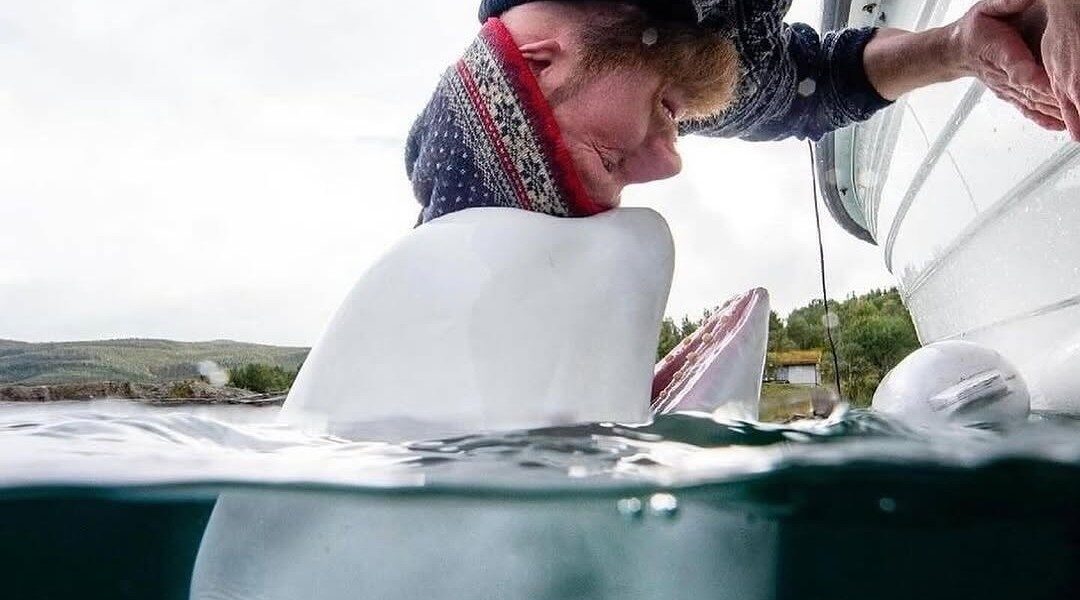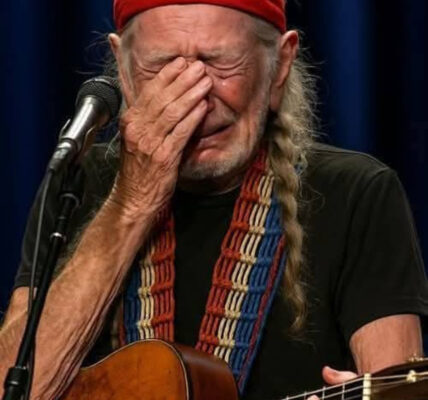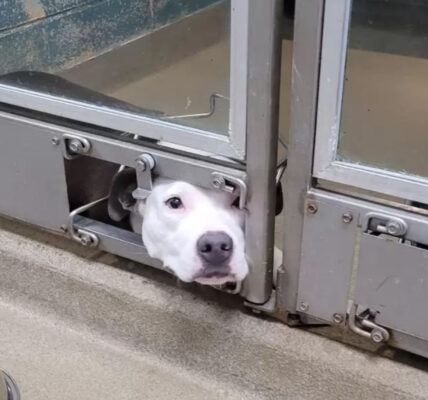
He didn’t thrash.
He didn’t cry out.
He simply swam—slowly, silently—brushing against the fishing boats as if trying to say, “Notice me… but don’t be afraid.”
That’s how Joar first saw him.
At a glance, he looked like any other beluga—graceful, ghostly white against the icy blue. But then Joar saw it: straps. A leather harness, tight around his body. Man-made. Wrong.
And then the whale did something no wild animal usually does.
He came closer.
He nudged the hull again, gently. Not out of aggression. Not out of fear. Almost… in hope.
Joar, a seasoned fisherman, didn’t hesitate.
He slipped into his survival suit and dropped into the freezing Arctic water.
The whale waited.
No panic. No fight.
Just patience.
Joar unfastened one buckle.
Then another.
And finally, the last strap floated free—falling away like a weight lifted not just from the whale’s body, but from something deeper.
Still, the whale didn’t leave.
He turned and pressed his head softly against Joar’s chest. And stayed.
They named him Hvaldimir.
Where he came from remains a mystery.
Some believe he was trained by the military.
Some say he escaped from captivity.
Others say he was lost.
But everyone agrees on one thing:
He chose to return.
He chose people.
He chose closeness.
He chose trust.
And through his quiet presence—through his curious eyes, his playful nudges, his willingness to connect—Hvaldimir reminded us of something too easily forgotten:
That wild doesn’t mean dangerous.
That asking for help isn’t weakness.
That gentleness is a kind of strength all its own.
And maybe, most importantly—
That even in the coldest waters, friendship can still be found.
If we’re willing to listen when it swims right up to us…
and asks to be free. 🐋💙




